On This Day…March 19th
The savaging and ultimate survival of the USS Franklin (CV-13) is a story of Naval infamy and legend. Legendary insofar as her crew performed miracles to keep the ‘Big Ben’ afloat, and infamous that they did so despite their Captain, Leslie Geheres.
Only five months before, in the aftermath of the Battle of Leyte, the Franklin was shattered by direct kamikaze hits. The first struck off her starboard side, the second hit the flight deck and broke through onto the lower deck, killing 56 and wounding 60. The third plane narrowly missed the Franklin before exploding into the deck of Belleau Wood...
Geheres took command over the Franklin just after the kamikaze attack at Leyte with these his first words to the gathered crew...
“It was your fault because you didn’t shoot [the kamikaze] down. You didn’t do your duty; you’re incompetent, lazy, and careless. Evidently you don’t know your jobs and I’m going to do my best to shape up this crew!’
Anyone who has put on a uniform know the type. And you never forget them.
On the morning of March 19th, 1945, the Franklin was just 50 miles off the Japanese mainland as part of Task Force 58. A lone Yokosuka DY4 ‘Judy’ penetrated the Big Ben’s defences and dropped two 500lb bombs on her flight deck. Explosions rocked the ship and fires ran largely uncontrolled as many of the dedicated fire control crew had been killed in the first impacts.
Geheres, amid some sound orders, was confusing, contradictory, and unfocused. He ordered evacuation of all personnel “not essential to the saving of the ship” and then ordered even wounded men to return. (In)famously, he instigated the ‘Big Ben 704 Club’ which excluded any man who had left the inferno.
Two crew men were awarded the Medal of Honor for their actions that day. Father Joseph O’Callahan’s Citation is recorded below. He was originally bestowed the Navy Cross, but he felt the Medal was a cover for Geheres to receive the same award. O’Callahan became the only man to refuse the Navy Cross, and was then given the Medal of Honor “whether he wants it or not”, by direct intervention of President Truman.
Bear in mind reading the citation that O’Callahan suffered clinically crippling claustrophobia. In the photo below he is seen ministering to a wounded sailor on the day of the attack.
“For conspicuous gallantry and intrepidity at the risk of his life above and beyond the call of duty while serving as chaplain on board the U.S.S. Franklin when that vessel was fiercely attacked by enemy Japanese aircraft during offensive operations near Kobe, Japan, on 19 March 1945.”
“A valiant and forceful leader, calmly braving the perilous barriers of flame and twisted metal to aid his men and his ship, Lt. Comdr. O'Callahan groped his way through smoke-filled corridors to the open flight deck and into the midst of violently exploding bombs, shells, rockets, and other armament. With the ship rocked by incessant explosions, with debris and fragments raining down and fires raging in ever-increasing fury, he ministered to the wounded and dying, comforting and encouraging men of all faiths; he organized and led firefighting crews into the blazing inferno on the flight deck; he directed the jettisoning of live ammunition and the flooding of the magazine; he manned a hose to cool hot, armed bombs rolling dangerously on the listing deck, continuing his efforts, despite searing, suffocating smoke which forced men to fall back gasping and imperiled others who replaced them.”
“Serving with courage, fortitude, and deep spiritual strength, Lt. Cmdr. O'Callahan inspired the gallant officers and men of the Franklin to fight heroically and with profound faith in the face of almost certain death and to return their stricken ship to port.”
The other Medal of Honor was awarded to Donald Gary, Engineering Officer, who’s Citation reads,
‘Stationed on the third deck when the ship (Franklin) was rocked by a series of violent explosions set off in her own ready bombs, rockets and ammunition by the hostile attack, Lieutenant Gary unhesitatingly risked his life to assist several hundred men trapped in a messing compartment filled with smoke, and with no apparent egress.”
“As the imperiled men below decks became increasingly panic-stricken under the raging fury of incessant explosions, he confidently assured them he would find a means of effecting their release and, groping through the dark, debris-filled corridors, ultimately discovered an escapeway. Staunchly determined, he struggled back to the messing compartment three times despite menacing flames, flooding water and the ominous threat of sudden additional explosions, on each occasion calmly leading his men through the blanketing pall of smoke until the last one had been saved.”
‘Selfless in his concern for his ship and his fellows, he constantly rallied others about him, repeatedly organized and led fire-fighting parties into the blazing inferno on the flight deck and, when firerooms 1 and 2 were found to be inoperable, entered the No. 3 fireroom and directed the raising of steam in one boiler in the face of extreme difficulty and hazard.”
“An inspiring and courageous leader, Lieutenant Gary rendered self-sacrificing service under the most perilous conditions and, by his heroic initiative, fortitude and valor, was responsible for the saving of several hundred lives. His conduct throughout reflects the highest credit upon himself and upon the United States Naval Service.”
Quite incredibly, the crew finally managed to contain fires and get boilers on line. The Franklin not only made steam, she sailed the entire 12,000 miles back to New York under her own power.
Lieutenant Jimmy Thach's landing accident in a Brewster Buffalo aboard USS Saratoga; proving even legends had to start somewhere.19th of March, 1940.
March 19, 1944 (Sunday) - the Douglas A-20 Havoc ‘Tobias the Terrible’, 89th Attack Squad, 3rd Bombardment Group of the 5th Army Air Force pulls out of a dive on the troop ship ‘Taipei Maru’. The aircraft was damaged in the attack, blowing the hydraulics and damaging a wing, necessitating a ditch in the ocean just a few minutes later. All crew survived and were recovered.
The salvage of USS Oklahoma on March 19th, 1943 Pearl Harbour.
Spitfires headed for Malta on board the HMS Eagle, March 19th, 1942.
German tanks and armored personnel carriers (Pz.Kpfw.IV Ausf.G Sd.Kfz.251 / 1 Ausf.C) on the counteroffensive near Kharkov. March 19, 1943.
19th of March 1945: The ‘Grand Slam’ bomb being dropped from a modified Avro Lancaster (No. 617 Squadron) on the railway viaduct Arnsberg, Germany.
The Grand Slam was a 22,000lbs ground penetrating bomb which was the largest and heaviest aerial bomb used during World War II.
On March 19th, German tanks rolled into Budapest on an ‘invite’ from the Hungarian government. Just months later it was the Russian tanks rolling in the same streets.

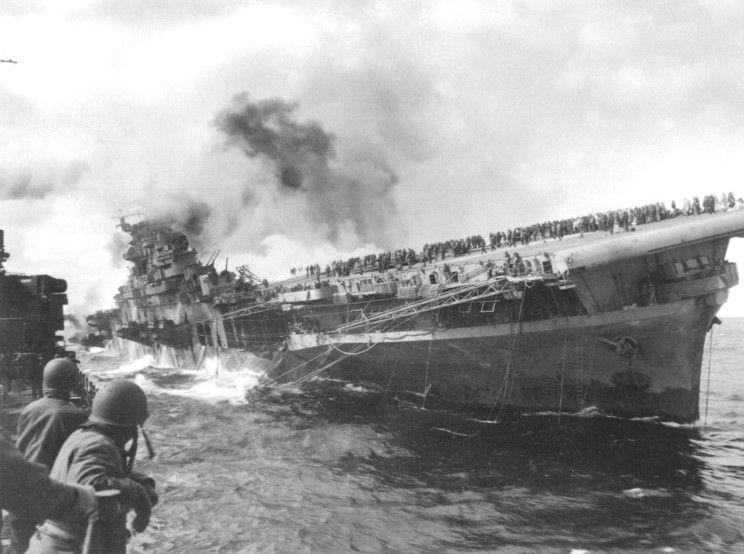
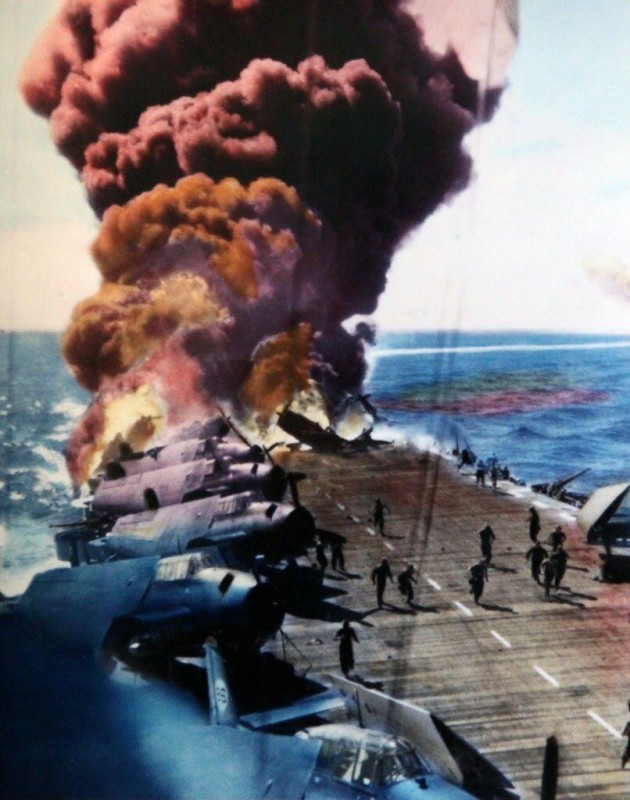

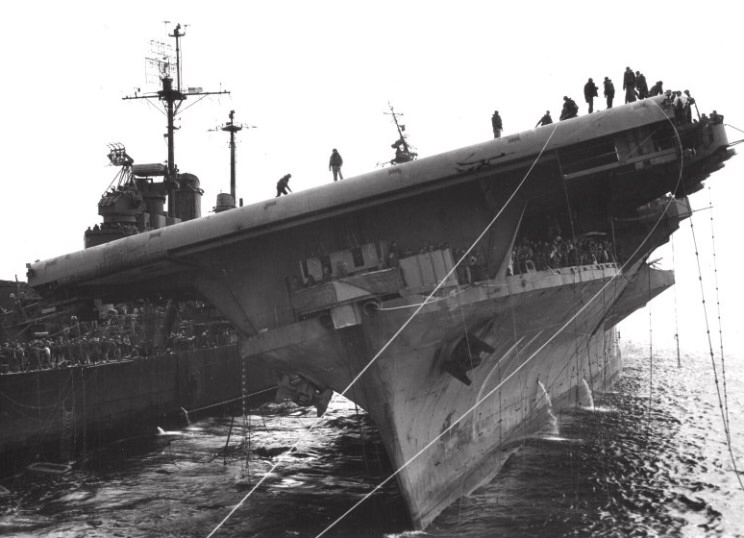
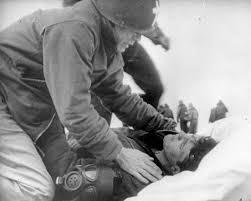
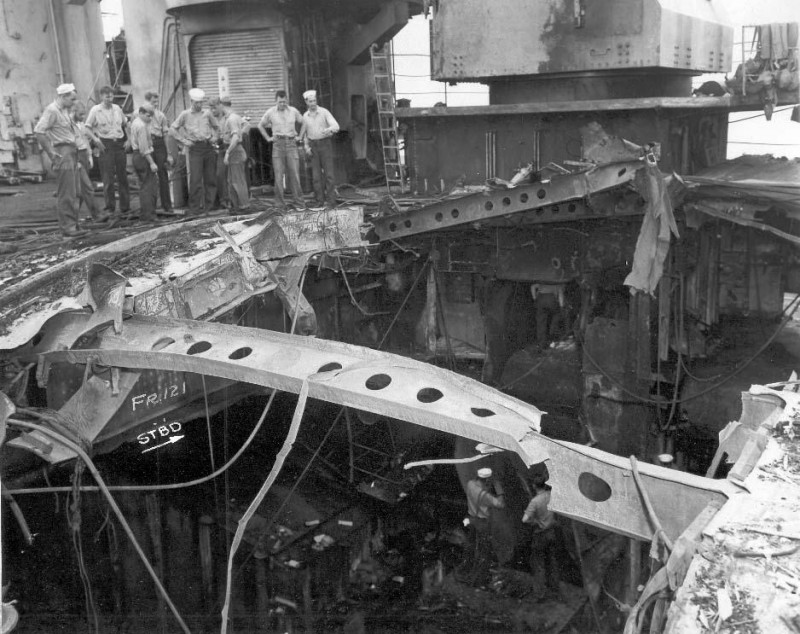

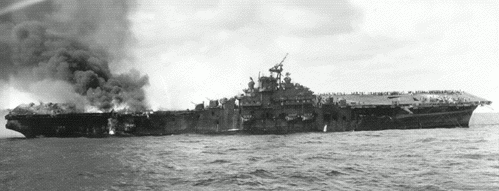
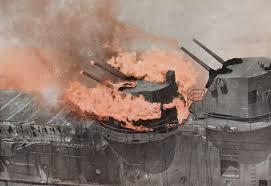
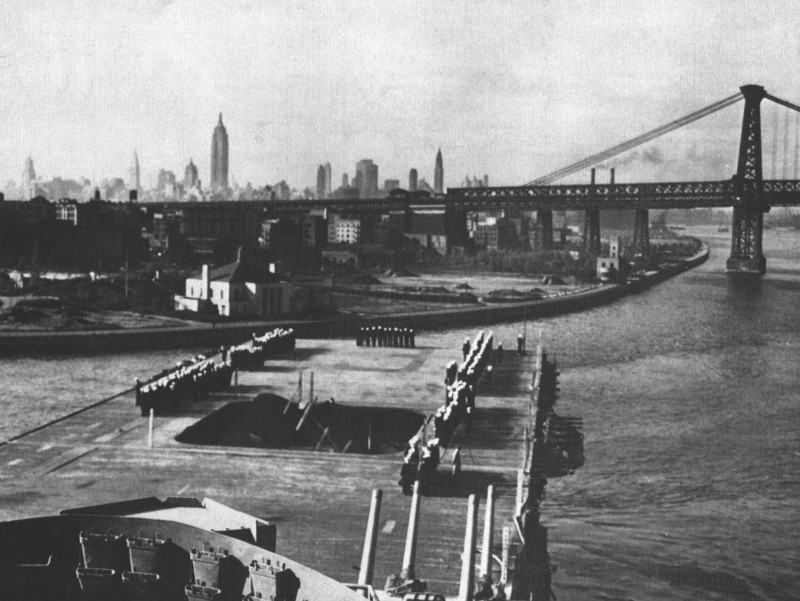
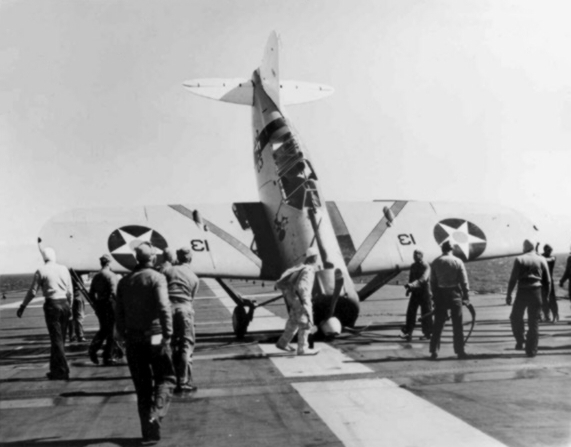
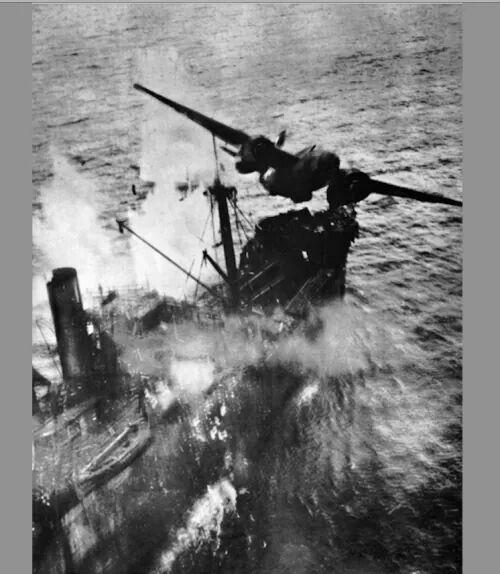
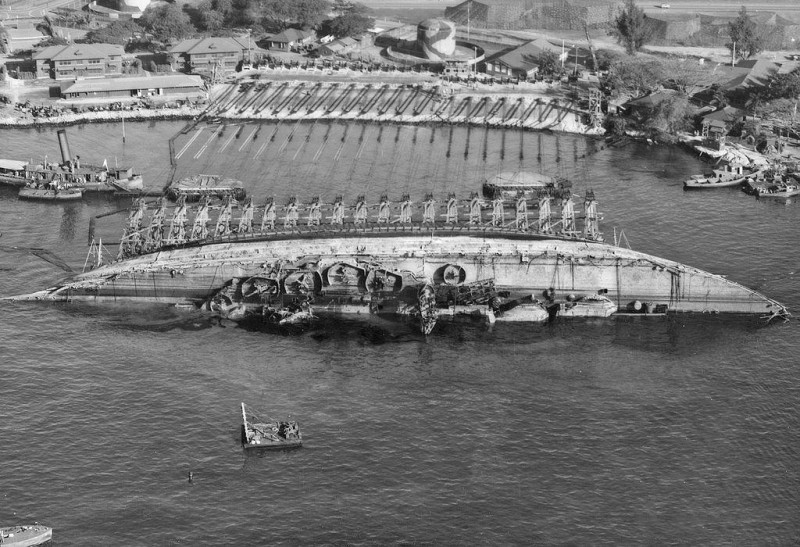
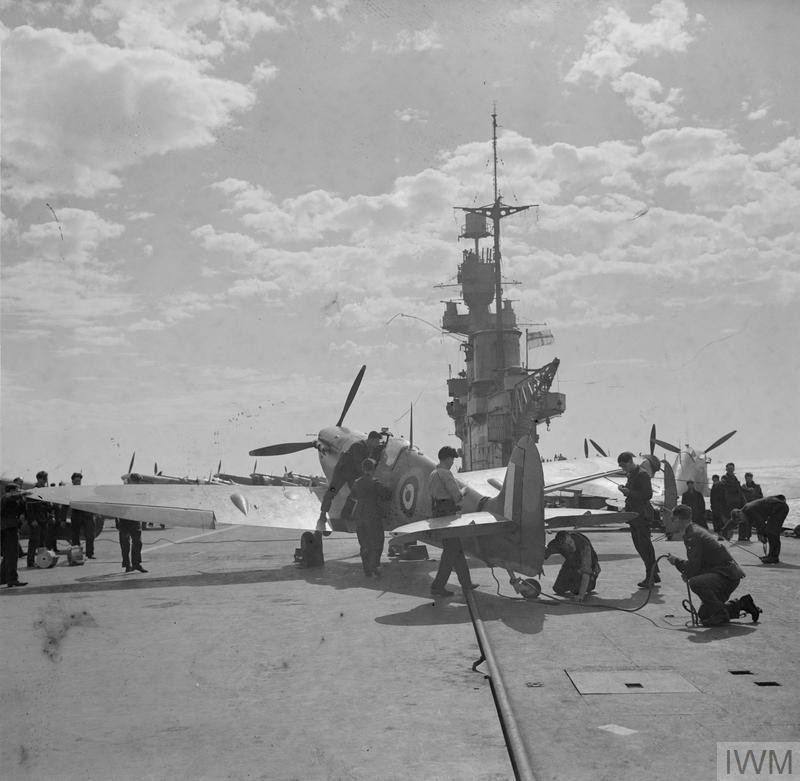
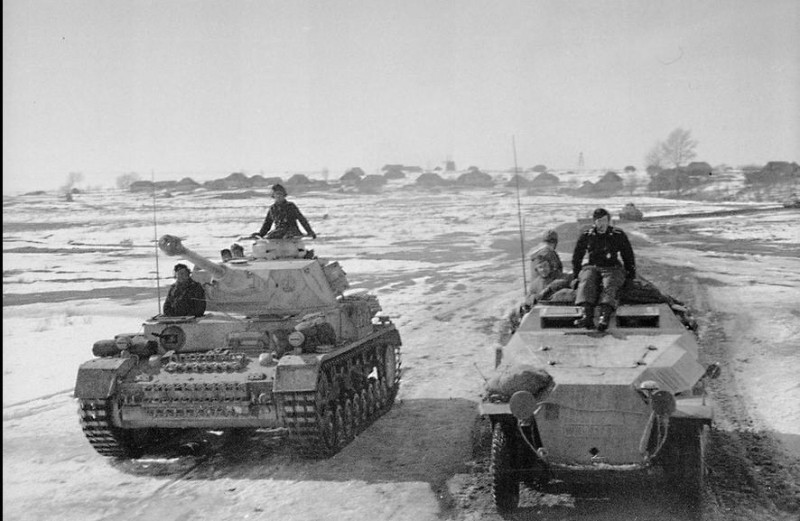
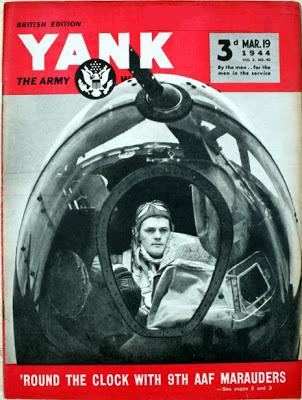
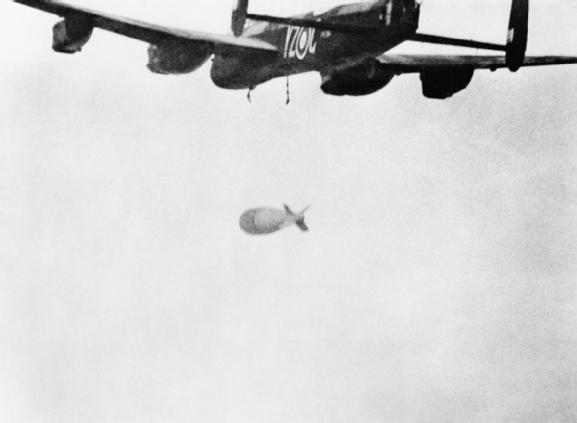
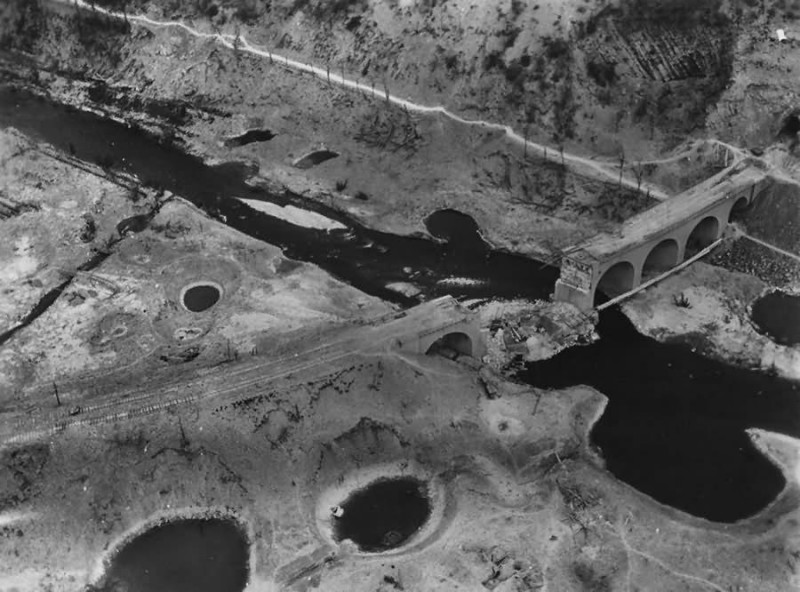
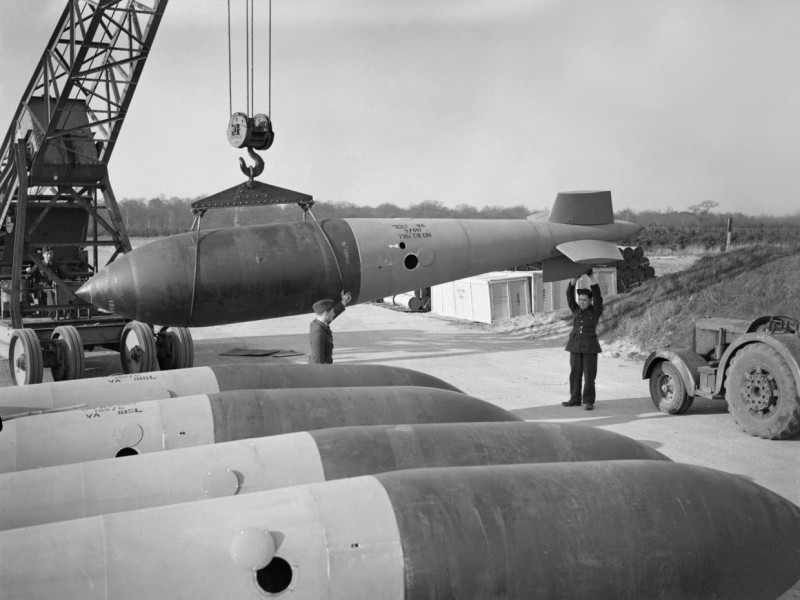
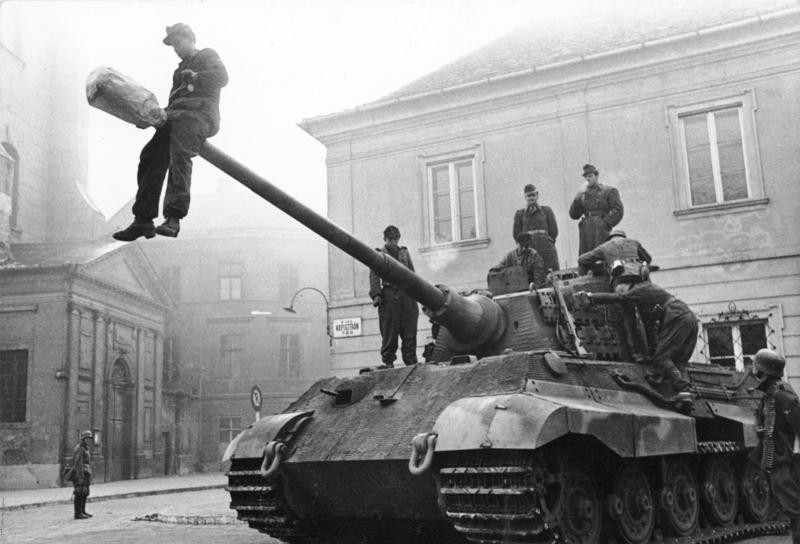
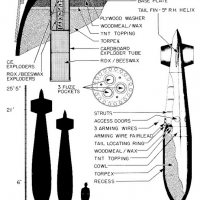
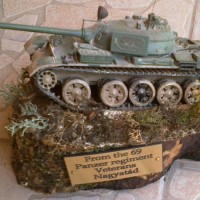

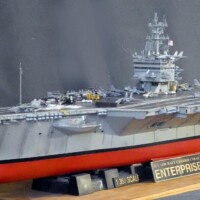
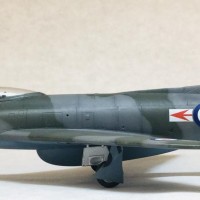
Either you fight the fire or give up the ship. if every Marine is a rifleman, every sailor's a firefighter. Didn't know about that Captain, and yes we've all ran across his type.
The word I keep coming across when I read about Geheres is 'toxic'. My understanding is that he tried to court-martial every officer and petty officer who left the ship, whether they were blown off, injured, or jumped for their lives. In a moment of sanity the Navy put a stop to all that. There's also the fact that despite the Franklin crew being the most decorated sailors of any ship ever, not one of those sailors outside the '704 club' got so much as a handshake.
Another great selection of photos and a story of courage and endurance David - good to hear Robert@roofrat comments also - I am reading Battle Cry by Leon Uris at the moment - so I am familiar with the USMC saying but had not heard 'every sailor a firefighter' before.
Stories like these illustrate the simple truth behind the words.
I think I picked it up from a damage control instructor.
Hello David,
Interesting story regarding the USS Franklin. New to me.
Like mentioned above, these CO's can make it in peace time, but when the ...hits the fan, they are not able to cope with the situation.
Just only recently saw the original "Caine Mutiny". Based on a true story.
For those interested:
Falkland Conflict book: "Not mentioned in dispatches" CO from the Elite 2nd Battalion, Parachute Regiment UK, totally unfit for the job. Most interesting is to read how the military authorities tried to hide this from the general public. Seems to be forbidden lecture in this unit. It must have been a burden for the second in command.
Regards, Dirk
The movie "Task Force" (1949), is a pretty good recounting of the development of US naval aviation from the Langley in 1922 to a re-enactment of the saving of the Franklin - (Gary Cooper's character is definitely NOT based on Gheres). Wayne Morris, who plays one of the naval aviators, said it was the one movie where he didn't have to prepare as an actor (since he was a 7-victory Hellcat ace during the war with VF-15).